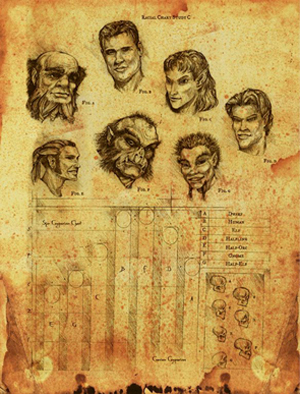
Cultural Traits

 |
Humans * 1 extra feat at 1st level. * Automatic Language: Common. * Bonus Languages: Any. * Favored Class: Any. Dwarves * Weapon Familiarity: As dwarf. * +1 racial bonus on attack rolls against orcs and goblinoids. * +4 dodge bonus to AC against monsters of the giant type. * Automatic Languages: Common and Dwarven. * Bonus Languages: As dwarf. * Favored Class: Fighter. Elves * Weapon Proficiency: As elf. * Automatic Languages: Common and Elven. * Bonus Languages: As elf. * Favored Class: Wizard. Gnomes * Weapon Familiarity: As gnome. * +1 racial bonus on attack rolls against kobolds and goblinoids. * +4 dodge bonus to AC against monsters of the giant type. * Automatic Languages: Common and Gnome. * Bonus Languages: As gnome. * Favored Class: Bard. Halflings * +2 morale bonus on saving throws against fear. * +1 racial bonus on attack rolls with thrown weapons and slings. * Automatic Languages: Common and Halfling. * Bonus Languages: As halfling. * Favored Class: Rogue. | |||||||||||||||||||||||||||||||||||||||||||||||||||||||||||||||||||||||||||||||||||||||||||||||||||